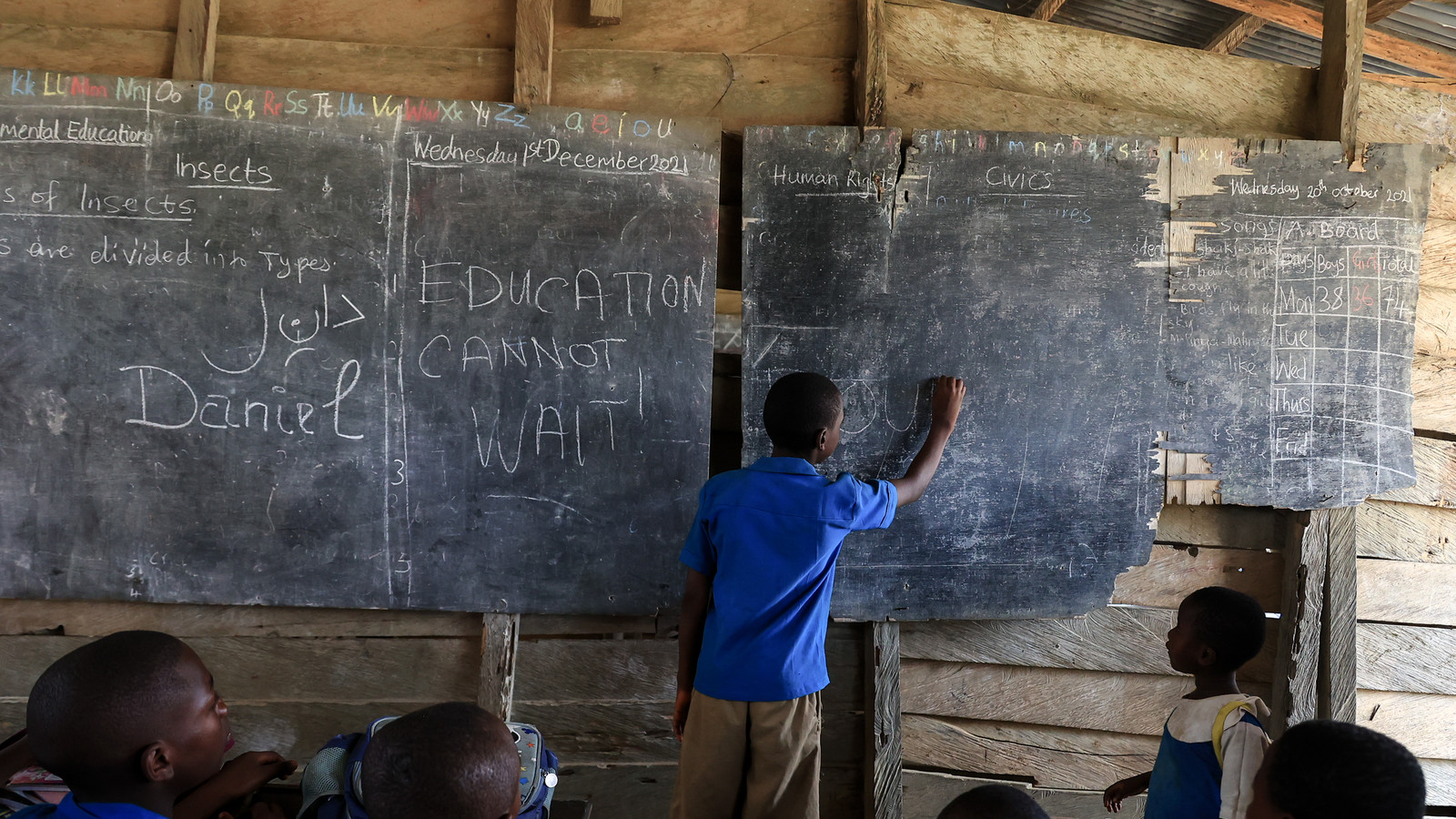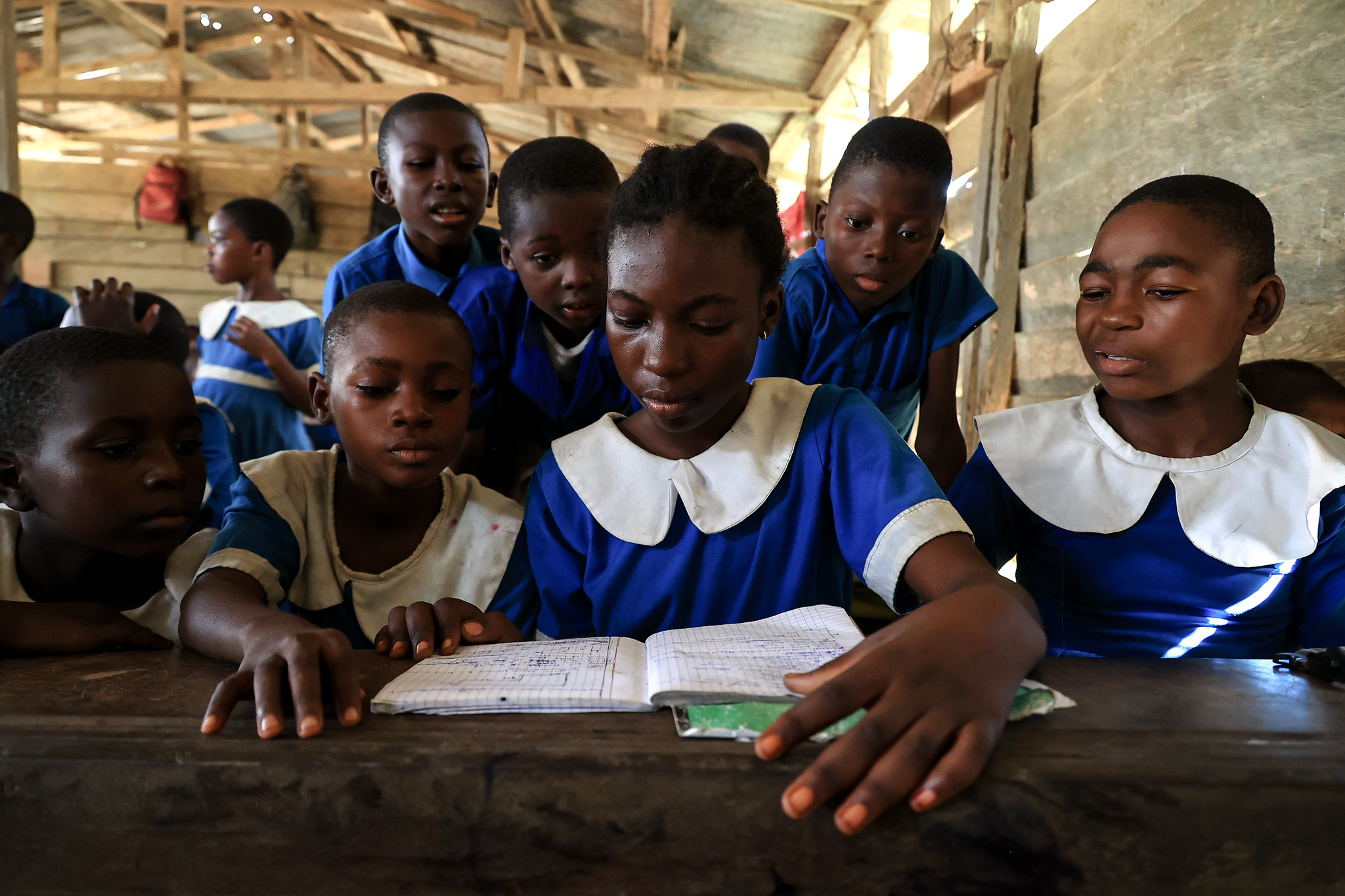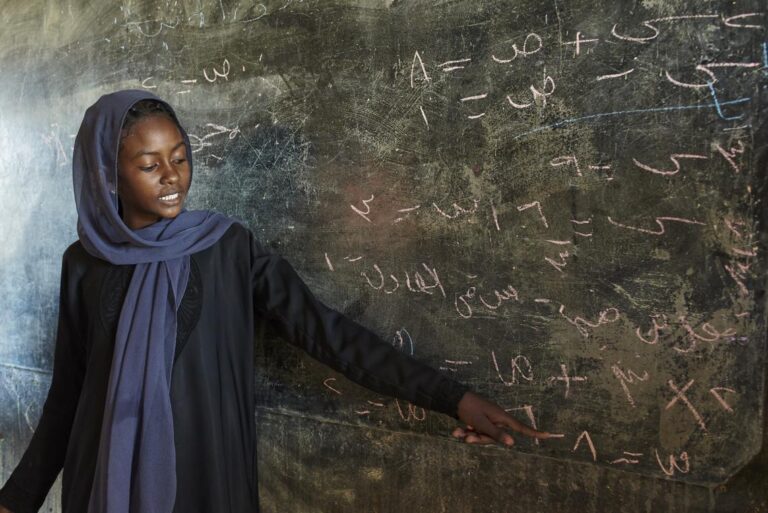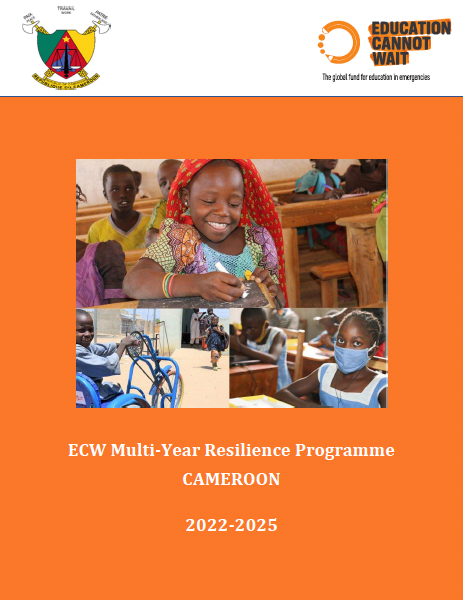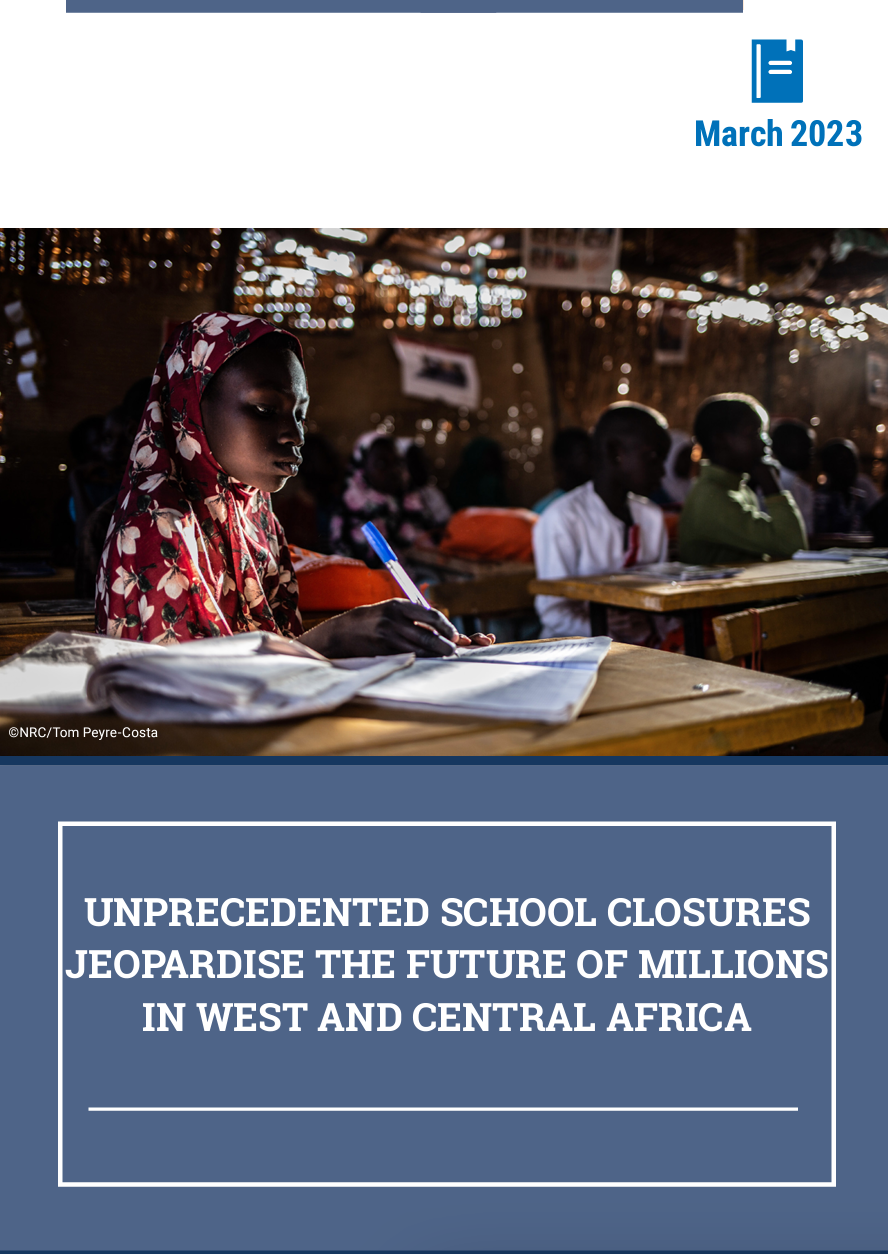ECW in Cameroon
Education Cannot Wait (ECW) supports partners in Cameroon to respond to the complex humanitarian crises affecting the country. In the North-West and South-West regions, conflict and violence is causing entire communities to flee and forcing school closures. The Far North is affected by flooding and the Lake Chad Basin Boko Haram crisis with violence and insecurity fueling population displacements within Cameroon and across the border from Nigeria. The eastern parts of the country are impacted by a refugee influx from the Central African Republic. ECW launched its first Multi-Year Resilience Programme (MYRP) in Cameroon in 2022, which builds on the impact of ECW’s previous First Emergency Response (FER) grants. With its emphasis on investments in gender, disability inclusion, and mental health and psychosocial support, the multi-year programme seeks to increase the capacity of the national education system to plan, monitor, coordinate, finance and deliver quality educational responses in crisis-affected areas.
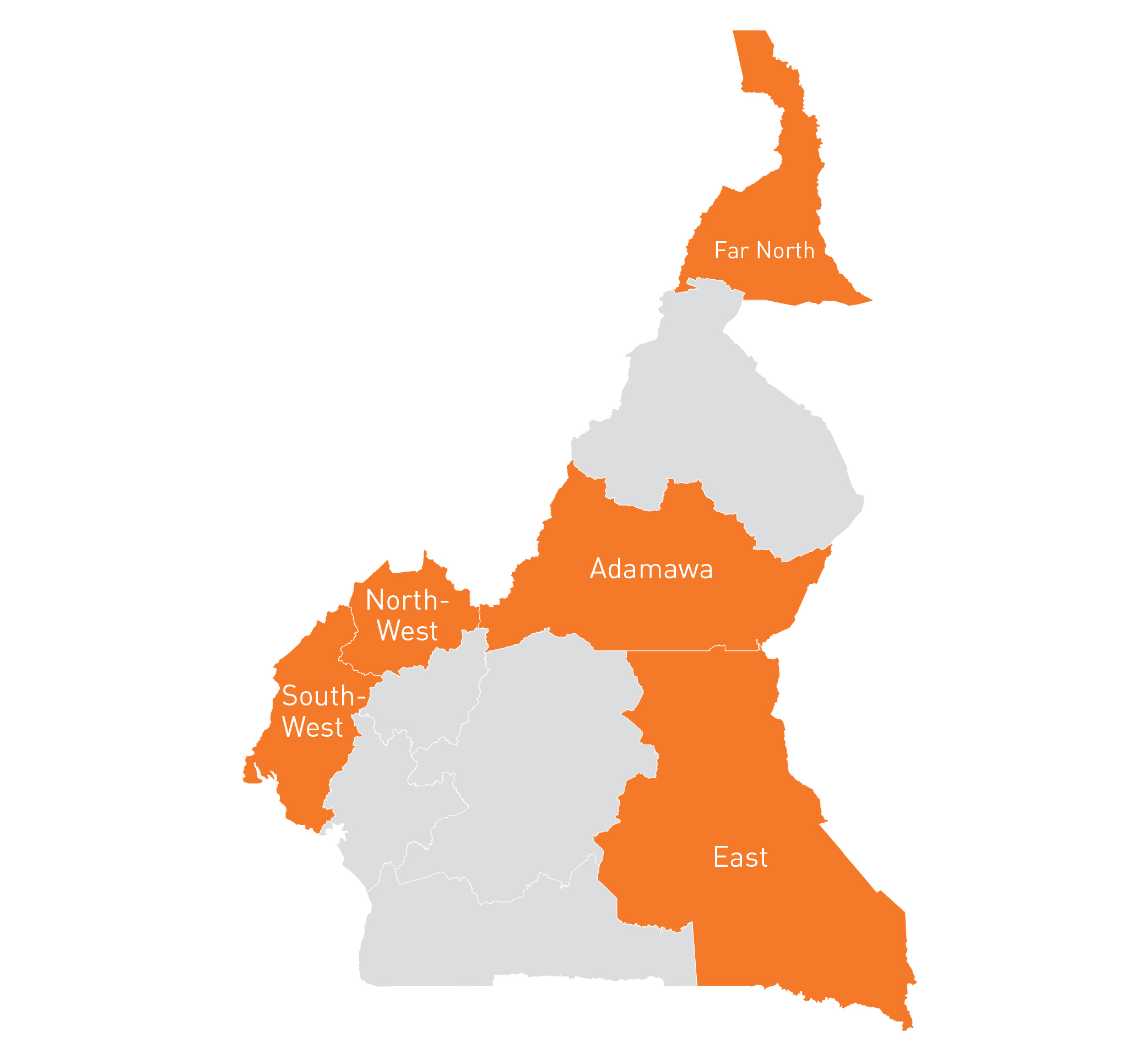
Investments
Financial Information
National Counterparts
Ministry of Basic Education
Results
Additional Results
- Number of women and men reached by community mobilization campaigns to encourage re-enrolment of out-of-school children: 1,318
- Number of teachers/administrators trained in subject knowledge, curriculum or pedagogy topics: 5,608
COVID-19 Results
Programme Info
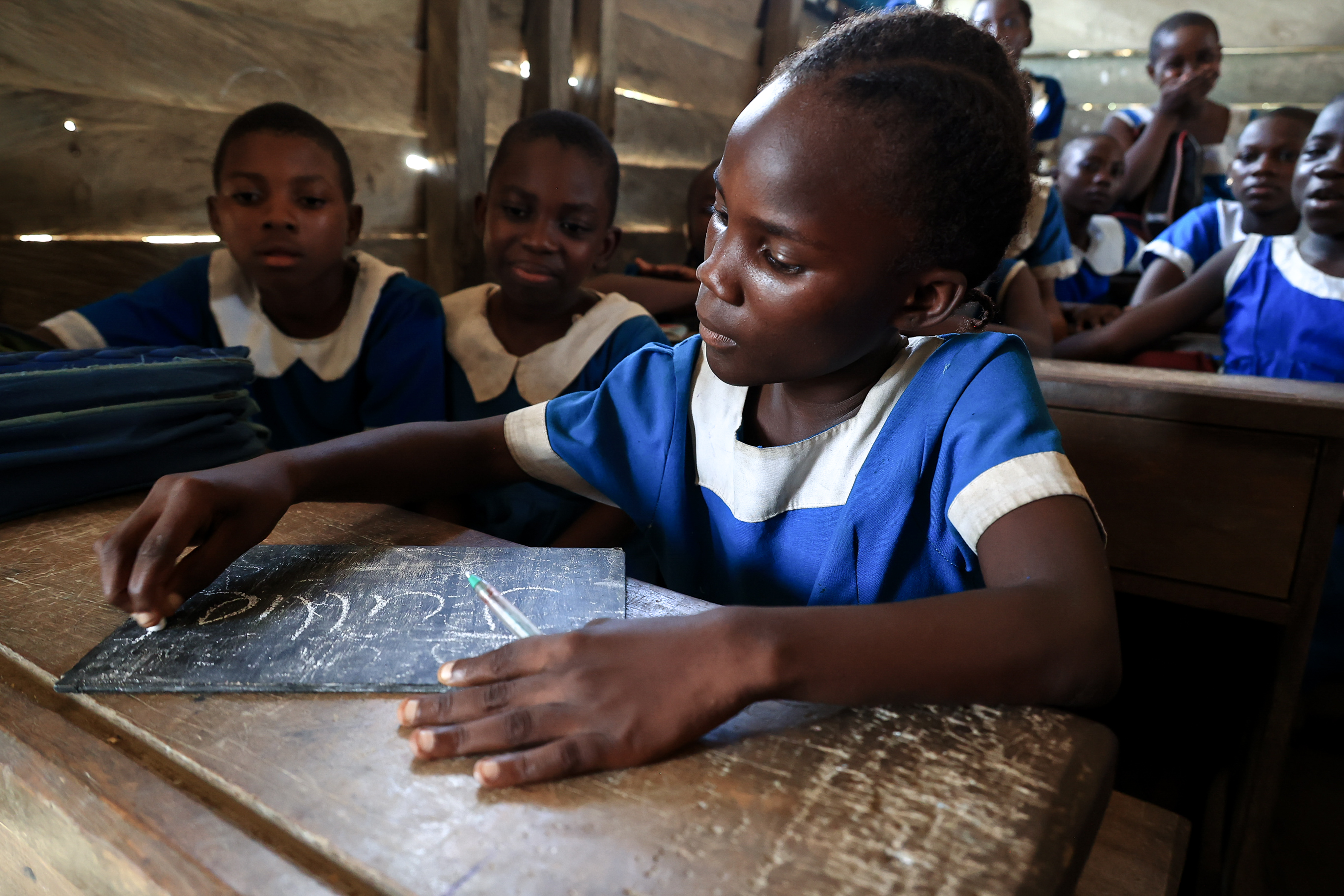
Cameroon hosts thousands of refugees, mostly from the Central African Republic, who have fled armed conflict. While the number of refugee children enrolled has increased overall, girls and children with disabilities are frequently left behind. Many of these children lack access to essential resources and support to continue their education.
ECW's initial FER in the country was launched in 2019 and focused on the North-West and South-West Regions of Cameroon. In 2020, a COVID-19 FER was announced to support access and continuity of children’s learning in crisis-affected areas. In 2021, the Fund launched a FER to ensure refugee children and youth arriving from the Central African Republic receive access to quality learning in Cameroon.
ECW launched its first MYRP in the country in 2022. With its emphasis on investments in gender, disability inclusion, and mental health and psychosocial support, the multi-year programme seeks to increase the capacity of the national education system to plan, monitor, coordinate, finance and deliver quality educational responses in crisis-affected areas. The Programme spans the continuum from early childhood education to adolescent skills programming and includes adolescent girls’ secondary education as well as non-formal alternative education.
Programme Components
- Increasing access to equitable and inclusive education. Grantees will increase school absorption capacities through the rehabilitation and construction of inclusive school infrastructures. To reduce barriers to education, investments support school feeding programmes, help engage stakeholders in social dialogue to promote schooling for all, including children with disabilities, and improve mental health and psychosocial support through specially-designed activities at school. Investments also support the integration of inclusive education in policies and education programmes.
- Improving the quality of education at each level. Grantees will focus on improving working conditions of teacher/education personnel and support the adaptation of teaching/learning materials to better respond to gender-based violence and mental health and psychosocial support. Systematic consultation takes place with women's and girls' groups in the communes for the establishment of temporary learning spaces. Grants will also support skills-building at the secondary level and help ensure the provision of menstrual care kits and similar assistance for adolescent girls.
- Ensuring the school environment is safe and protective. A mitigation plan for gender-based violence risks is being implemented and gender-sensitive digital platforms are being set up for alternative education initiatives.
- Strengthening education system’s ability to plan and respond in emergencies. Prioritising the mobilisation of resources will ensure the scale-up of the Programme. Grantees will support schools in setting up functional school management committees and/or parent-teacher associations. Policies, plans and frameworks will be established that promote inclusive education and increase the education system’s resilience to shocks.
For more information on ECW's work in Cameroon, please contact Country Lead Graham Lang (glang@un-ecw.org) and Programme Manager Noemi Robiati (nrobiati@unicef.org).

